The draft document to be submitted to the 14th National Congress of the Party has just been discussed by the National Assembly at its 10th session. General Secretary To Lam's opening speech before the discussion session was only over 10 minutes long, but according to National Assembly delegates, he raised many existing problems in a very straightforward manner.
Regarding institutions, the General Secretary said that laws are enacted to manage society, but in practice there is still a situation where "the laws are correct but implementation is difficult", "they are clear in parliament but difficult at the grassroots level".
Therefore, he asked the delegates to clarify: Why are there laws, decrees, and circulars that are issued very elaborately and densely, but grassroots officials do not dare to implement them; businesses struggle to find a way around them; people are confused and go back and forth? Where is there overlap, where is there a difference in understanding between ministries and branches, where is the authority given but people are forced to take responsibility beyond their control?
Vietnam is facing a great opportunity to reposition its development model.
Although before the discussion session, he had prepared comments for the draft document to be submitted to the 14th Party Congress, National Assembly delegate Ha Sy Dong ( Quang Tri ) said that immediately after listening to the General Secretary's speech, he immediately "adjusted" many contents in his comments, in which he pointed out practical shortcomings.
“The draft Political Report submitted to the 14th National Congress has shown many new things, clearly showing the strategic vision, comprehensive development thinking and strong aspiration for innovation of the Party in the new period, but to turn the vision into a real driving force for development, it is necessary to clarify the breakthrough orientations in institutions, growth models and national development aspirations,” said Mr. Dong.

National Assembly Delegate Ha Sy Dong (Photo: Hong Phong).
According to him, institutional improvement is the “number one strategic breakthrough”. The delegate commented that institutions are still the biggest bottleneck, but at the same time, they also have the greatest room for reform.
Over the years, Mr. Dong said that many policies and strategies were correct, but when institutionalized and implemented, they were slow and lacked consistency, causing social resources to not be fully liberated.
Stating that the disbursement of public investment capital is still stuck, delegate Dong reflected on the situation of "capital waiting for projects, projects waiting for capital", slow resource allocation, bringing documents to the process from the previous year to half a year later to see information... Along with that, there are many good projects but entangled in all sorts of things, bound by outdated planning that makes "even if you want to do it, you can't".
Therefore, the former Chairman of Quang Tri province believes that this document needs to emphasize more clearly the role of a modern, creative and honest socialist rule-of-law State - a State that not only manages but also leads and creates institutional space for innovation.
In the digital age, institutions must shift from a “management - licensing” mindset to a “creation - leadership - service” mindset, according to Mr. Dong.
The delegate cited many countries such as Singapore and South Korea that have boldly applied the “institutional sandbox” mechanism, allowing policy testing in new areas such as artificial intelligence, digital finance, and renewable energy. Vietnam also needs to soon institutionalize this model to both control risks and encourage innovation.

Hoa Lac High-Tech Park (Photo: Ha Phong).
Besides, it is necessary to continue decentralization and delegation of power in conjunction with power control, in order to promote the proactiveness and daring to think and act of localities, especially dynamic regions, economic zones, high-tech zones, free trade zones, etc.
“Real decentralization must go hand in hand with a transparent accountability mechanism and effective power control. In the past, this has been very confusing. Many localities have room to do it but do not have the authority. They want to establish economic zones and free trade zones to attract investment resources, but the procedures are still very complicated,” said delegate Ha Sy Dong.
Specifically, he suggested that local authorities could be given the responsibility to balance and convert land types into purposes such as planning for industrial development, services, commercial housing, etc. Localities would balance their own resources and take responsibility.
"We need to decentralize more boldly and thoroughly, ending the situation of reporting to all levels year after year that land use purposes have not been converted, leaving land fallow is a huge waste," said Mr. Dong.
Another content he contributed was the transformation of the growth model from breadth to depth, in which it is necessary to emphasize the organizational mechanism for implementing the green economic development model, knowledge economy and digital economy.
Delegate Dong commented that Vietnam is facing a great opportunity to reposition its development model, shifting from "growth based on investment and cheap labor" to "development based on knowledge, technology and innovation".
To do this, digital transformation and innovation must be considered the central driving force. The State needs to play the role of “midwife” in terms of institutions, data and digital infrastructure, instead of focusing only on physical investment.
Need open development thinking, proactive integration, smart management
Commenting on the aspiration for national development - the spiritual driving force of the new era - delegate Ha Sy Dong emphasized that the Political Report is not only a guide for action but also a flame that ignites national belief and will.
According to him, the Vietnam 2045 aspiration needs to be expressed more clearly, not only as a goal, but also as the Party's political and moral commitment to the people: To turn the country into a developed nation, with a happy society, prosperous culture, and creative and free-to-contribute people.
“In the context of globalization and profound transformation of the world, we need an open development mindset - proactive integration - smart governance - continuous innovation,” Mr. Dong suggested that this aspiration needs to be institutionalized with specific action programs.

General Secretary To Lam and the working delegation surveyed the preparations for organizing a two-level local government model in Xuan Hoa ward, Ho Chi Minh City (Photo: D.Q.).
In summary, Mr. Dong suggested that the 14th Congress documents should emphasize some more fundamental, core and stronger orientations.
One is to comprehensively institutionalize new development thinking, taking innovation and digital transformation as the central driving force, considering this a breakthrough leading all fields.
Second is to build a modern, transparent, efficient, and flexible developmental state that operates on an open data platform and digital governance, minimizing administrative intervention in market and social activities.
Third is to create an institutional framework for the green economy, digital economy and knowledge economy, turning challenges related to climate, energy and technology into new development opportunities.
Fourth is to establish a mechanism for decentralization and substantive decentralization, associated with power control and accountability, to maximize the creativity of each level and locality, especially decentralization and decentralization at the new commune level to resolve procedures for people as quickly and effectively as possible.
Fourth is to arouse and spread the aspiration for Vietnam to develop strongly, prosperously and happily, taking Vietnamese people with knowledge, courage and culture as the center, subject and goal of development.
“If this document clearly demonstrates those ideas, it will certainly create a new institutional turning point and development breakthrough, bringing the country into the era of a digital creative state, green economy and creative Vietnamese people,” delegate Dong stated his opinion.
Need a digital highway for the legal system
Vice Chairwoman of the Law and Justice Committee Nguyen Phuong Thuy also expressed her agreement with the draft Political Report when identifying institutional building and improvement as one of the three strategic breakthroughs in the upcoming development period of the country.
“The mindset of considering institutions as the foundation of development demonstrates the Party's strategic vision because only when institutions are transparent can national governance be effective and social trust be strengthened,” said Ms. Thuy.

Deputy Head of the Committee on Law and Justice Nguyen Phuong Thuy (Photo: Minh Chau).
In recent years, delegate Thuy assessed that the legal system has made many important strides and innovations in legislative thinking. However, one of the biggest bottlenecks today is the overlapping, conflicting, and lack of consistency between legal documents, on the same issue, sometimes there are 3-4 laws with the same regulations, making enforcement both difficult and prone to legal risks.
“People, businesses and even state agencies are extremely confused when they do not know which documents are still in effect and which provisions have been amended or supplemented,” Ms. Thuy said.
Although we talk a lot about institutional reform and innovation in legislative thinking, according to the female delegate, if we only stop at amending individual laws or adding individual provisions, it will be very difficult to create fundamental changes.
“If the economy wants to take off, we need more highways and high-speed railways. But the legal system - the foundation of national governance - also needs a digital highway to operate smoothly, avoiding congestion and connection errors, and that highway is machine-readable law,” Ms. Thuy suggested.
According to her, many countries such as the EU, Singapore, and Australia have gone ahead with legal data standards. If Vietnam does not convert, it will fall behind in the integration process.
Based on that reality, the female delegate proposed adding the task of building and developing a machine-readable legal system to the institutional strategic breakthrough section. This is not just a reform, technical improvement will be an institutional breakthrough, helping the Vietnamese legal system become transparent, unified, accessible and self-detecting contradictions.
Along with that, it is necessary to establish national data standards on law, similar to standards on writing administrative documents or national statistics.
Delegate Thuy also proposed promoting publicity, transparency and social criticism in the legislative process. According to her, all draft laws should be posted as open data so that people, researchers and businesses can directly participate in giving comments using digital tools. When data is open, the criticism process also becomes more democratic and scientific.
“Legal reform in the coming period should not stop at issuing new laws or amending and supplementing them, but should also rebuild the entire national legal administration system. Law must become the infrastructure of development, not a barrier,” Ms. Thuy emphasized.

National Assembly Delegate Nguyen Thi Lan (Photo: Hong Phong).
Meanwhile, delegate Nguyen Thi Lan (Hanoi) proposed clarifying the content of institutional breakthroughs, especially in the context of digital transformation and international integration.
According to her, institutions are the legal framework that shapes all development activities, so when the economy operates according to a digital model, data and digital technology become new resources, requiring institutions to have flexible innovations and quickly adapt to this reality.
The female delegate also proposed to add orientations on developing the national innovation ecosystem to strengthen the connection between the State and enterprises, research institutes and universities. From there, domestic resources can be fully exploited and knowledge and innovation can be turned into competitive strength.
Source: https://dantri.com.vn/thoi-su/nha-nuoc-hien-dai-khong-chi-quan-ly-can-dan-dat-tao-khong-gian-doi-moi-20251107173600072.htm



![[Photo] Cutting hills to make way for people to travel on route 14E that suffered landslides](https://vphoto.vietnam.vn/thumb/1200x675/vietnam/resource/IMAGE/2025/11/08/1762599969318_ndo_br_thiet-ke-chua-co-ten-2025-11-08t154639923-png.webp)






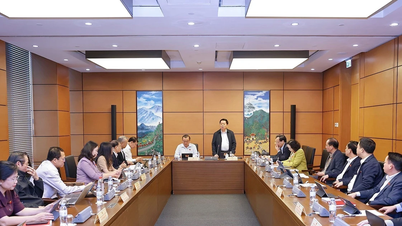

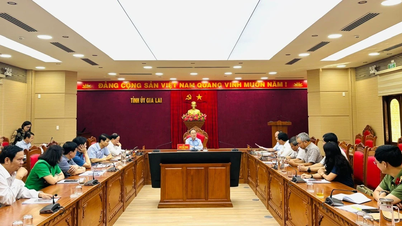



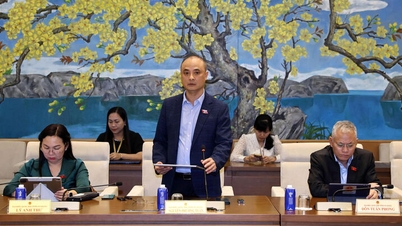

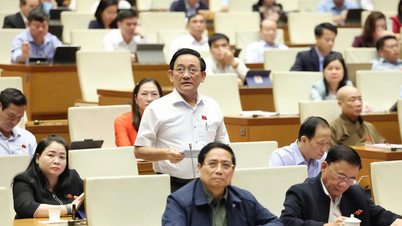

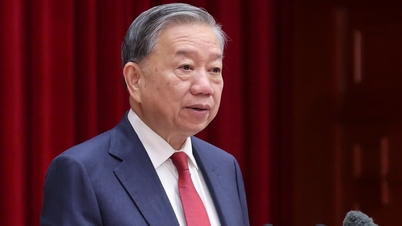

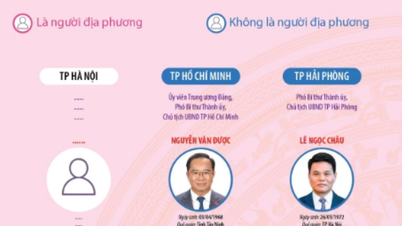



















![[Video] Hue Monuments reopen to welcome visitors](https://vphoto.vietnam.vn/thumb/402x226/vietnam/resource/IMAGE/2025/11/05/1762301089171_dung01-05-43-09still013-jpg.webp)













































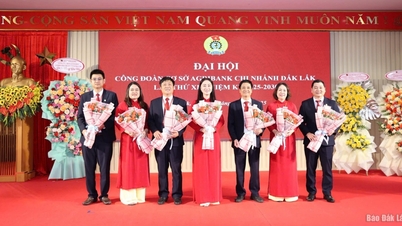

















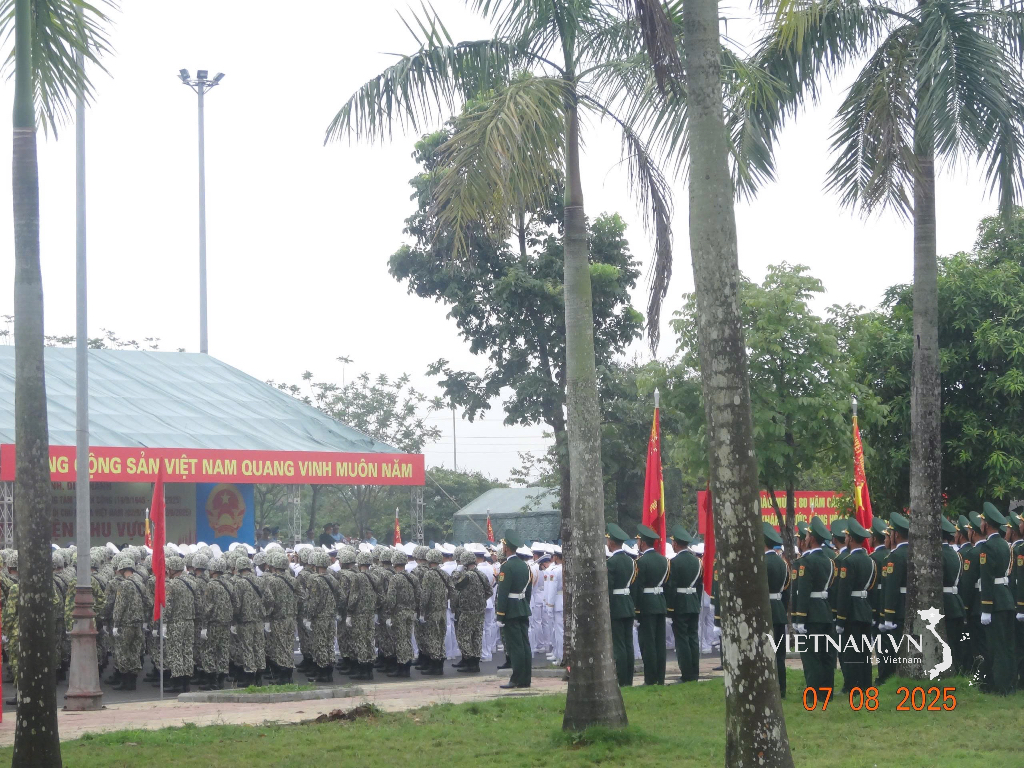

Comment (0)